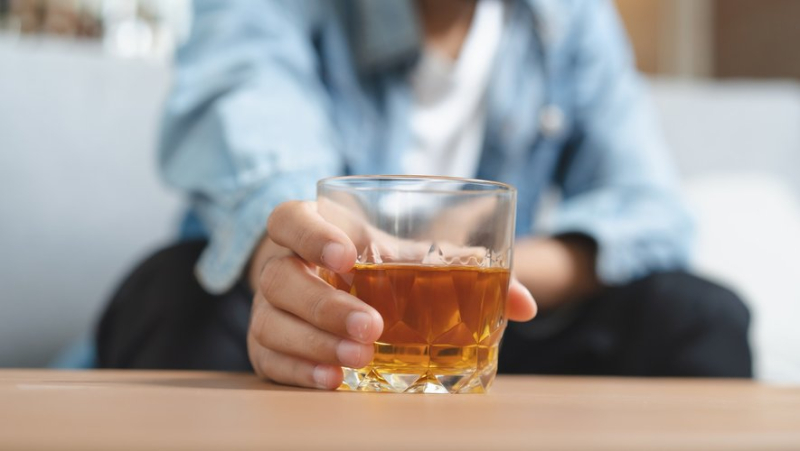Alcohol dependence: 5 signs that should alert you to your consumption

Alcohol dependence: 5 warning signs
Are there any manifestations of alcoholism ? In her autobiography "Tout te dire", the singer and actress Camille Lellouche evokes the slow process that led her to suffer from alcoholism. rsquo;led to alcohol dependence. She even talks about “alcoholism without symptoms”.
Indeed, while many signs are recognizable (such as being often drunk…), others may be more difficult to identify.
From desire to need…
In reality, the reasons for alcohol dependence are multiple. They can be genetic, linked to trauma or even behavioral: we drink to party, we get into the habit of having aperitifs with colleagues after work…
And it is precisely at this moment that all the trickery of alcohol comes into play. Initially, the euphoric and relaxing effects of alcohol are pleasant. The person who drinks ends up looking for them without necessarily being aware of it. Then alcohol takes over. It helps to release pressure after the working day, to forget about stress… and thus becomes "THE" solution.
From then on, the person gets used to it and develops tolerance. In other words, the quantities ingested must be greater in order to continue to feel the same effects. Then comes the moment when we drink out of necessity, to avoid craving…
Evocative signs ?
Addiction is sneaky and can take years to take hold, going almost unnoticed. However, certain behaviors can indicate problematic alcohol consumption:
1.You consume more and more often…
If drinking after each day of work has become a habit or if you cannot imagine seeing friends or going to a party without consuming alcohol, you may be at risk of addiction. . Drinking earlier and earlier in the day can also be a sign.
2.and larger quantities
We know that no level of alcohol is safe. However, the World Health Organization (WHO) has set a threshold of 3 glasses per day for men and 2 for women (with one day of the week without consuming any). If you have gotten into the habit of exceeding this indicator, again, the risk of addiction is real.
3.Your behavior has changed
The direct consequence of more frequent and heavy alcohol consumption are behavioral changes, such as mood swings and irritability. Anxiety and difficulty getting through your days may also appear. Those around you may have told you about it.
4.Your social relationships have deteriorated
Other possible consequences, your social relationships have deteriorated. If you argue with family, between friends, if you no longer have any patience with your children… hellip; This may be a sign to be concerned about your alcohol consumption. Furthermore, absenteeism from work or a tendency towards isolation are all criteria to take into account.
5.You have physical and psychological symptoms of withdrawal
When you don't drink, withdrawal symptoms can include shaking, sweating, nausea, insomnia, nightmares…
How do I know if I'm at risk ?
It is not always easy to admit that we are having difficulties with alcohol. Several questionnaires can be used to detect excessive consumption The DETA questionnaire (for Reduce, Entourage, Too Much, Alcohol) is the simplest. It includes four questions:
Have you ever felt the need to reduce your consumption of alcoholic beverages ? Have those around you made comments to you about your consumption ? Have you ever felt like you were drinking too much ? Have you ever needed alcohol in the morning to feel good ?
If you answered in the affirmative to at least 2 questions, this may justify discussing the subject with your general practitioner.
Note: Excessive alcohol consumption is a major risk factor for certain cancers: mouth, throat, esophagus, colon -rectum, breast… Furthermore, it promotes certain chronic diseases: liver diseases (cirrhosis) and pancreas, cardiovascular disorders, high blood pressure, diseases of the nervous system, psychological disorders (anxiety, depression, behavioral disorders), early dementia…< /p>




